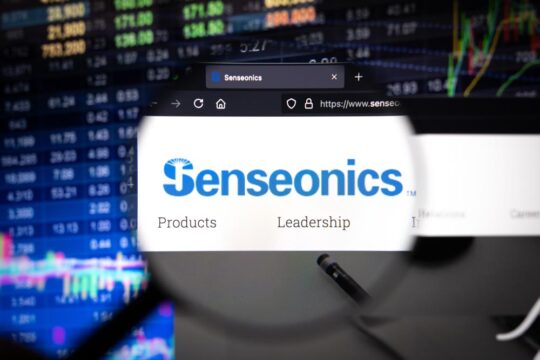Advertisment
New compounds in the treatment of IBD (ECCO 2017)
Never before in the history of IBD have there been so many promising compounds in the pipeline. In a scientific session dedicated to new compounds, leading investigators discussed recent clinical results and potential place…
Professor Sévérine Vermeire (Leuven, Belgium) summarises the ‘New drugs’ session at ECCO and gives her opinion on what the future holds for IBD management.
Never before in the history of IBD have there been so many promising compounds in the pipeline. In a scientific session dedicated to new compounds, leading investigators discussed recent clinical results and potential place in therapy for some of the most promising developments.
JAK inhibitors
Janus kinase (JAK) inhibitors, named after the Roman god of gates and passages, target the Janus family of tyrosine kinases and thus influence the JAK-STAT signalling pathway which plays an important role in immune regulation.1-3 JAK inhibition has been shown to be an effective therapeutic target in inflammatory conditions such as rheumatoid arthritis (RA) and psoriasis, and also in some forms of cancer.4 In her overview Professor Séverine Vermeire from Leuven highlighted tofacitinib as the only JAK inhibitor that has completed phase 3 trials in IBD. The OCTAVE clinical trial programme showed that tofacitinib was effective for inducing clinical remission and mucosal healing within 8 weeks of treatment of UC.5 Although tofacitinib was associated with significant greater reductions of CD disease activity and CRP levels from baseline, the clinical remission rate at week 8 was not statistically significant from placebo and the study failed to meet its primary endpoint.6
Efforts to improve the clinical benefit of JAK inhibition by more specific targeting have resulted in filgotinib, a JAK1-specific inhibitor currently in phase 2 clinical development. Filgotinib has demonstrated significantly higher remission and clinical response rates, improvements in histopathology scores, and normalisation of serum CRP compared with placebo in CD patients.7 In contrast, peficitinib which specifically targets JAK3 was not significantly better than placebo for improving Mayo scores in UC.8
JAK inhibitors are small molecules and one of the key anticipated benefits over biologicals will be rapid onset of action and lack of immunogenic potential. Both tofacitinib and filgotinib reached significant superiority over placebo within 4 weeks of the start of induction therapy.5, 7 As for safety, early concerns about a link between tofacitinib and cardiovascular risk have proved unfounded: the OCTAVE trials showed only a small increase in cholesterol levels and no increase in the incidence of cardiovascular events.5 A slight increase in the risk of herpes zoster infection has been detected in the RA trials and Dr Vermeire predicted that the recommendations regarding vaccination of patients receiving biological therapy are also going to apply to the JAK inhibitors.
Professor David Rubin (Chicago, USA) and Professor Laurent Peyrin-Biroulet (Nancy, France) also give their opinions on new drugs for IBD.
S1P receptor modulators
Next, Professor Arthur Kaser from Cambridge summarised the available evidence for sphingosine 1-phosphate (S1P) receptor modulators in IBD. S1P receptor modulators are potent immunomodulators that work by binding to S1P receptors on lymphocytes to prevent egress from the lymphoid tissue and thereby reducing the number of peripheral lymphocytes.9-11 S1P receptor modulators have been used for the treatment of multiple sclerosis for a number of years – fingolimod was approved by the FDA in 2010 based on phase 3 trial results which showed superior efficacy over placebo and interferon.12, 13 In Europe fingolimod is approved for second-line treatment in MS due to its infectious and cardiovascular safety profile.14, 15 S1P receptor modulators have only recently been tested in IBD and Professor Kaser described the efficacy results to date as unimpressive. In the TOUCHSTONE trial in UC, ozanimod achieved slightly higher clinical remission and mucosal healing rates compared with placebo which were maintained at week 32.16 Absolute lymphocyte counts declined by up to 49% from baseline in patients receiving ozanimod; the overall adverse event profile was consistent with that seen in MS trials.16 A number of other S1P receptor modulators are currently in clinical development for IBD and other indications; however, pending phase 3 study results and in the absence of biomarkers to predict response it is too early to speculate on their place in therapy.
Anti-IL-12/IL-23 compounds
The pro-inflammatory cytokines IL-12 and IL-23 play a critically important role for adaptive immunity and targeting their signalling pathways has been shown to be highly effective and safe for inducing and maintaining remission in CD. Professor Bruce Sands from Mount Sinai in New York was an investigator on the UNITI trial programme which documented a human interleukin-12/23 monoclonal antibody, ustekinumab, for the treatment of CD. Ustekinumab targets the p40 subunit of IL-12 and IL-23 and was shown in phase 2 trials to induce and maintain remission in patients who had failed one or more anti-TNF therapies.17, 18 These findings were substantiated in the extensive UNITI phase 3 programme which demonstrated that ustekinumab was significantly superior to placebo for inducing remission in anti-TNF-refractory and anti-TNF-naïve CD patients and maintaining remission at 44 weeks.19 The rationale for the continued development of anti-IL-23 and anti-IL-12 therapies is to target the p19 subunit of Il-23 to achieve greater specificity and thereby enhance the anti-inflammatory effect. Two anti-p19 antibodies are currently in early clinical development and have shown promising results in anti-TNF-refractory CD. Brazikumab was associated with almost two-fold higher clinical response and remission rates after 8 weeks of treatment, and nearly twice as many patients achieved at least 100 points improvement in CDAI compared with placebo.20 Resankizumab at a dose of 600mg resulted in significantly higher clinical and endoscopic remission rates compared with placebo in predominantly anti-TNF-experienced patients with moderate to severe CD.21 It is too early to speculate whether anti-p19 antibodies will be effective for the treatment of UC.
References
- Ghoreschi K, Laurence A, O’Shea JJ. Janus kinases in immune cell signaling. Immunol Rev 2009;228:273-87.
- O’Shea JJ, Kontzias A, Yamaoka K, et al. Janus kinase inhibitors in autoimmune diseases. Ann Rheum Dis 2013;72 Suppl 2:ii111-5.
- O’Sullivan LA, Liongue C, Lewis RS, et al. Cytokine receptor signaling through the Jak-Stat-Socs pathway in disease. Mol Immunol 2007;44:2497-506.
- Danese S, Grisham M, Hodge J, et al. JAK inhibition using tofacitinib for inflammatory bowel disease treatment: a hub for multiple inflammatory cytokines. Am J Physiol Gastrointest Liver Physiol 2016;310:G155-62.
- Sandborn WJ, Sands BE, D’Haens G, et al. OP019. Efficacy and safety of oral tofacitinib as induction therapy in patients with moderate-to-severe ulcerative colitis: results from 2 phase 3 randomised controlled trials. Journal of Crohn’s and Colitis 2016;10:S15-S15.
- Panes J, Sandborn WJ, Schreiber S, et al. Tofacitinib for induction and maintenance therapy of Crohn’s disease: results of two phase IIb randomised placebo-controlled trials. Gut 2017.
- Vermeire S, Schreiber S, Petryka R, et al. Clinical remission in patients with moderate-to-severe Crohn’s disease treated with filgotinib (the FITZROY study): results from a phase 2, double-blind, randomised, placebo-controlled trial. Lancet 2017;389:266-275.
- Sands B, Sandborn W, Feagan BG, et al. DOP076 A phase 2B, multicenter, randomized, placebo-controlled dose-ranging trial of peficitinab, an oral JAK inhibitor, in patients with moderately to severely active ulcerative colitis. Journal of Crohn’s and Colitis 2017;11:S71-S72.
- Marsolais D, Rosen H. Chemical modulators of sphingosine-1-phosphate receptors as barrier-oriented therapeutic molecules. Nat Rev Drug Discov 2009;8:297-307.
- Matloubian M, Lo CG, Cinamon G, et al. Lymphocyte egress from thymus and peripheral lymphoid organs is dependent on S1P receptor 1. Nature 2004;427:355-60.
- Rivera J, Proia RL, Olivera A. The alliance of sphingosine-1-phosphate and its receptors in immunity. Nat Rev Immunol 2008;8:753-63.
- Cohen JA, Barkhof F, Comi G, et al. Oral fingolimod or intramuscular interferon for relapsing multiple sclerosis. N Engl J Med 2010;362:402-15.
- Kappos L, Radue EW, O’Connor P, et al. A placebo-controlled trial of oral fingolimod in relapsing multiple sclerosis. N Engl J Med 2010;362:387-401.
- Winkelmann A, Loebermann M, Reisinger EC, et al. Disease-modifying therapies and infectious risks in multiple sclerosis. Nat Rev Neurol 2016;12:217-33.
- Camm J, Hla T, Bakshi R, et al. Cardiac and vascular effects of fingolimod: mechanistic basis and clinical implications. Am Heart J 2014;168:632-44.
- Sandborn WJ, Feagan BG, Wolf DC, et al. Ozanimod Induction and Maintenance Treatment for Ulcerative Colitis. N Engl J Med 2016;374:1754-62.
- Sandborn WJ, Feagan BG, Fedorak RN, et al. A randomized trial of Ustekinumab, a human interleukin-12/23 monoclonal antibody, in patients with moderate-to-severe Crohn’s disease. Gastroenterology 2008;135:1130-41.
- Sandborn WJ, Gasink C, Gao LL, et al. Ustekinumab induction and maintenance therapy in refractory Crohn’s disease. N Engl J Med 2012;367:1519-28.
- Feagan BG, Sandborn WJ, Gasink C, et al. Ustekinumab as Induction and Maintenance Therapy for Crohn’s Disease. N Engl J Med 2016;375:1946-1960.
- Sands BE, Chen J, Penney M, et al. OP025. A randomized, double-blind placebo-controlled phase 2a induction study of MEDI2070 (anti-p19 antibody) in patients with active Crohn’s disease who have failed anti-TNF antibody therapy. Journal of Crohn’s and Colitis 2015;9:S15-S16.
- Feagan BG, Sandborn W, Panés J, et al. 812a Efficacy and Safety of Induction Therapy With the Selective IL-23 Inhibitor BI 655066, in Patients With Moderate-to-Severe Crohn’s Disease: Results of a Randomized, Double-Blind, Placebo-Controlled Phase II Study. Gastroenterology 2016;150:S1266.





